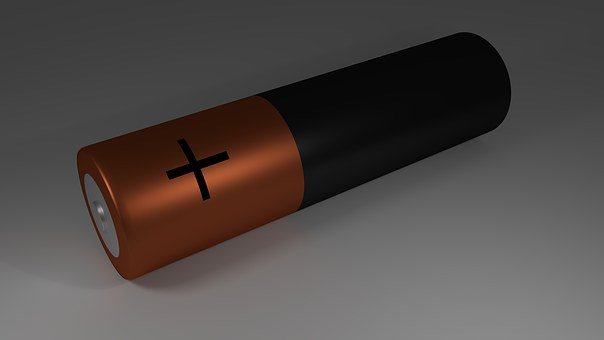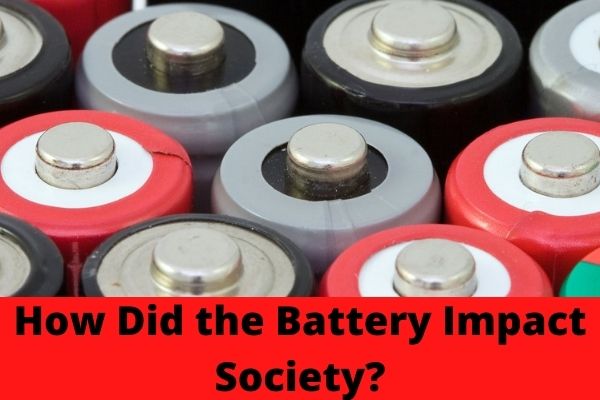As a flexible power source batteries are almost incomparable to other sources. They are compact, can be carried anywhere, and has decent energy density. Due to these natures, batteries are also higher up when it comes to structural complexity. The most common and debated issue is overcharging. Can you overcharge a lithium battery? How will it affect performance? Does it affect battery life? We will be discussing this at length.
It mainly depends on the type of charger you are charging your battery with. Or, the battery should have cut off the circuit to stop once it is full. Some chargers can stop charging when the battery is fully charged, others don’t. When the charger cannot stop once the battery is recharged, the battery can get overcharged.
Can You Overcharge A Lithium Battery?
To answer the question accurately we will have to take both charger and battery into consideration.
If the charger has a built-in mechanism to stop charging or the battery has cut off the circuit, then it would be possible to overcharge a lithium battery. Nowadays most lithium batteries come with cut-off circuits. So, in minor cases where the circuit fails, the battery can get overcharged.
On the other hand, if the battery and the charger lack this safety mechanism. Then the cell will get overcharged. Although you won’t have to worry about laptops or smartphone batteries. They can stop charging once they are full.
Does Overnight Charge Damage Lithium-Ion Battery?
No, overnight charging does not damage the lithium-ion battery because they have cut off circuits. These circuits play the role of a stopping mechanism once the battery is full.
However, the damage might come from another side. Because charging overnight would cause the battery to charge at 100%. As 100% charging would put a strain on cathode and anode. It is recommended to keep the charge between 20% to 80%.
How Long Will A Lithium Battery Hold A Charge?
As the perfect technology for batteries has not been invented yet, batteries have to lose charge. Lithium-ion batteries are no exception to the case. Although, they have a lower discharge rate than their counterparts.
Usually, these batteries have a self-discharge rate of around 5%. As the age increase, the discharge rate will also go up. So, they will last around 500 charging cycles or 2 to 3 years, whichever comes first.
The anode and cathode in the battery are separated by a medium, so that electrons cannot move between them. Still, a little amount of reaction always keeps taking place inside the battery. These reactions fuel the discharge rate.
How Many Times Can The Lithium-Ion Battery Be Recharged?
There is no fixed cycle of how many times a lithium-ion battery can run. Most batteries are guaranteed to complete at least 500 cycles. However, with time they start to lose their initial capacity.
These batteries lose their capacity because the anode and cathode inside the cell start to get corroded. Each time a little bit of corrosion happens, the battery loses a little bit of its capacity. As scientists have not found a way to solve this problem, losing capacity over time is inevitable.
Lithium-Ion Battery Myths
- Battery should get to 0 percent before recharging: Theoretically, the best option is to keep the charge at 50% to put the least strain on the battery. It is recommended to keep it between 20 and 80 percent.
- Memory effect in lithium-ion batteries: No, lithium-ion batteries do not suffer from the memory effect. It originated from old battery technologies as those batteries used to suffer from it.
- Performance degradation in cold weather: Lithium-ion batteries can operate efficiently in cold weather without any significant performance loss.
- Lithium-ion batteries are dangerous: They pose no danger as long as you use them within the bound. For example, trying to cutting open one would cause a fire. But something bad happening while the battery is in use is a rare occurrence.
How To Tell If A Lithium-Ion Battery Is Bad
There are a few signs that indicate the lithium-ion battery is going bad. Some of these are:
- The battery will get bloated. It happens because of gas buildup inside the battery.
- It often gets overheated. Both during use and during recharge.
- The current capacity is reduced significantly compared to the initial capacity.
- The self-discharge rate keeps going up and up.
- Check the manufacturing date if the performance is not up to date.
- Most importantly try to find manufacturer data and compare how they should behave under given voltage, limits, and currents.
Lithium-Ion Battery Deep Discharge
Deep discharge is the state where the battery has been severely discharged. Once the cell is depleted to its full capacity, it is considered to be in a deep discharge state. Usually, once the battery reaches below 2.5 volts, it goes into deep discharge mode.
Once the cell goes into this state, attaching it to regular chargers won’t charge them. On the contrary, they might end up harming the battery. In these scenarios, you will need chargers that have boost functions. You can recharge these power cells using boos functions.
What Are The Effects Of Battery Overcharging?
In layman’s terms, there are two sides to a battery. The side that contains electrons is called the anode. When an electron from an anode travel to the other side which is called the cathode, it generates electricity.
When there is low electron content in the anode, the battery needs recharging. During the recharge process, electrons in the cathode are pulled and sent to the anode.
Overcharging means more electrons have been sent to an anode that it can handle.
It can cause several problems like a thermal runaway, pressure increase. There might be gas build-up inside, so the battery will start to swell.
Overcharging will also corrode the cathode, which causes severe performance downfall. It will also shorten the life cycle of the battery.
Bottom Line
So hopefully questions like can you overcharge a lithium battery? Won’t be bothering you anymore. Lithium-ion batteries use some of the latest technologies to make sure the battery does not get overcharged. Although, accidents happen they are not as prevalent to be worried about.
Overall, you can keep the battery in the charger for long periods. But, keeping the charge level at 20% to 80% will ensure long-lasting life.
Related Posts:

